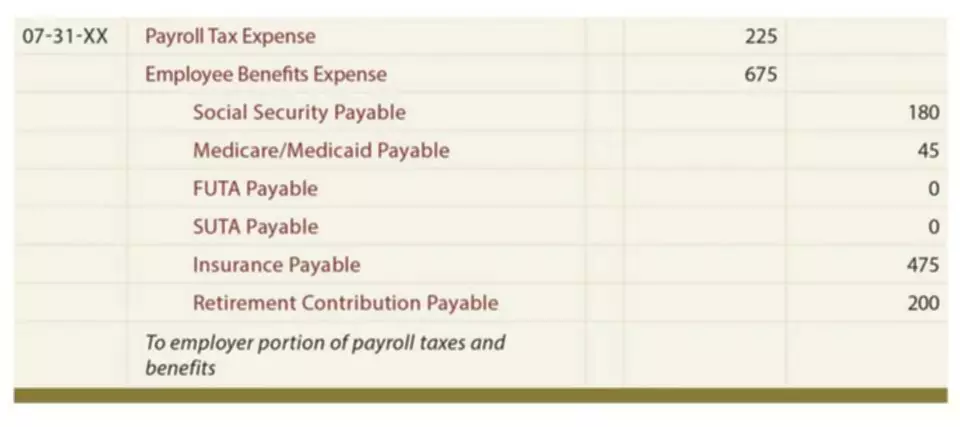Colorado Board of Accountancy HOME Division of Professions and Occupations
Content

While you may earn an accounting degree and go on to work in the profession, you need to pass the CPA exam to earn the right to use the CPA credential. It’s one of the most respected designations what is a cpa and professions in the world. Members of The Ohio Society of CPAs adhere to the highest professional standards and ethical conduct in serving their clients and the public interest.
- To practice as a CPA, you must hold a CPA license through your state licensing board.
- Some states issue inactive or non-practicing licenses for CPAs who are not actively engaged in practice.
- Further, it notes that the CHED issued several memorandums in 2017 that revise policies for university accountancy curricula to comply with the competency framework issued by the IAESB.
- Licensed Certified Public Accountants are the only individuals or firms who can issue independent reports on financial statements of business entities or other organizations in Massachusetts.
- Unlike some tax preparers who work just several months out of the year, CPAs are fully engaged in interpreting and applying tax law year-round.
Like other professionals, CPAs are required to take continuing education courses toward continuing professional development (continuing professional education ) to renew their license. Requirements vary by state (Wisconsin does not require any CPE for CPAs) but the vast majority require an average of 40 hours of CPE every year with a minimum of 20 hours per calendar year. The requirement can be fulfilled through attending live seminars, webcast seminars, or through self-study . In general, state boards accept group live and group internet-based credits for all credit requirements, while some states cap the number of credits obtained through the self-study format.
Certified Public Accountants
However, your degree must include a minimum number of credits in accounting and business subjects. Financial controllers head accounting departments in private enterprises. In nonprofit and government agencies, they are known as comptrollers.
Are all CPAs members of the aicpa?
Does becoming a member of the AICPA make me a CPA? No, the AICPA does not administer CPA licenses. Each state board of accountancy has their own requirements for CPA licensure and regulations for license/certificate holders.
If you have questions about your particular situation, please contact the Board office to determine whether or not you will need to be licensed. All CPA firms must first successfully renew their business permit before renewing their business license. Each licensee shall notify the board in writing within thirty days of any change of address or, in case of individual permittee, change of employment.
CPA in other countries
The biggest change in 2017 was the amount of knowledge required to answer each of the questions. Before 2017, questions on the CPA exam tested the applicants’ remembering and understanding of the concept. Remembering and understanding corresponds to the lowest levels of Bloom’s Taxonomy. Starting in 2017, examiners wanted to include questions that tested higher levels of Bloom’s Taxonomy. As such, the number of questions testing remembering and understanding was reduced and questions that tested an applicant’s analysis and application of a skill were added to the CPA exam.
The certified public accountant is a professional designation given to qualified accountants. In recent years, practice mobility for CPAs has become a major business concern for CPAs and their clients. In today’s digital age, many organizations require the professional services of CPAs to conduct business on an interstate and international basis and have compliance responsibilities in multiple jurisdictions. As a result, the practice of CPAs often extends across state lines and international boundaries. Specifically, the Regulation section of the CPA exam saw changes in 2017.
Renewal Information
CredentialNet will send a report to the applicant indicating substantial equivalency status. This record should be kept by the applicant as an official record for verification of their individual qualifications. Use the Step by Step tool to get an exhaustive list of requirements that matter to you. If you are still not convinced, please look up the rules and regulations of your chosen state board. On the NASBA website, you can find a full list of all 55 Boards of Accountancy. They usually have the full regulation publicly available, either online or in PDF format on their websites.
Do you supervise newly licensed #CPAs? The #FICPA and @AICPA are looking for volunteers to review the proposed Core and Discipline content for a new #CPA Exam Blueprint to be published next year. To participate, complete this #survey by Friday, Oct. 15. https://t.co/z8f9D3RPh5 pic.twitter.com/8LMMaCxOOo
— FICPA (@FICPA) September 21, 2021
Credit for the Commercial Law courses will be given provided the applicant has a J.D. After you have been determined eligible to sit for the computer based examination, you will be sent a “Notice to Schedule” . That means you will have 9 months from the date the NTS is issued to schedule, make appointment, and take the examination section for which you have applied. Candidates may take each exam section of the examination up to four times a year. Candidates may take any or all of the four sections of the examination during any testing window. Candidates are not be allowed to take the same section more than once during any given testing window. Candidates may apply for exam sections and make appointments on different dates.
State Board of Certified Public Accountants of Louisiana :: Louisiana CPA Board
Subsequently, PICPA began implementing its review system in April 2016 although it has only been able to carry out a limited number of inspections due to the voluntary nature of the program. Founded in 1902, Franklin is an accredited nonprofit https://www.bookstime.com/ university offering flexible college degrees online and at locations in Ohio and the Midwest. An enrolled agent is a tax professional authorized by the U.S. government to represent taxpayers in matters regarding the Internal Revenue Service.


